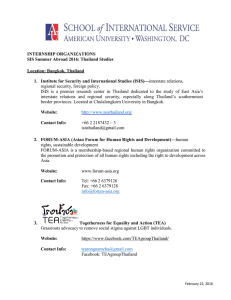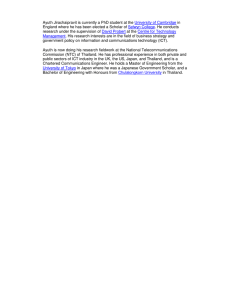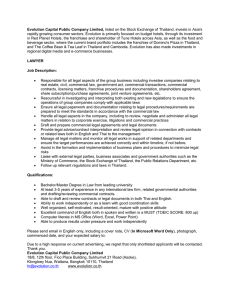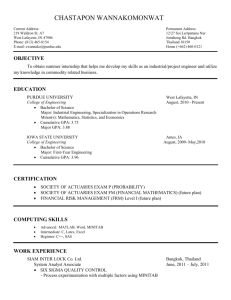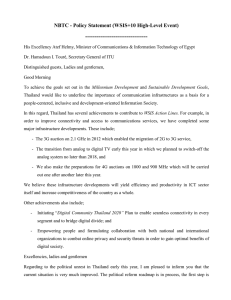Proceedings of Business and Social Sciences Research Conference
advertisement
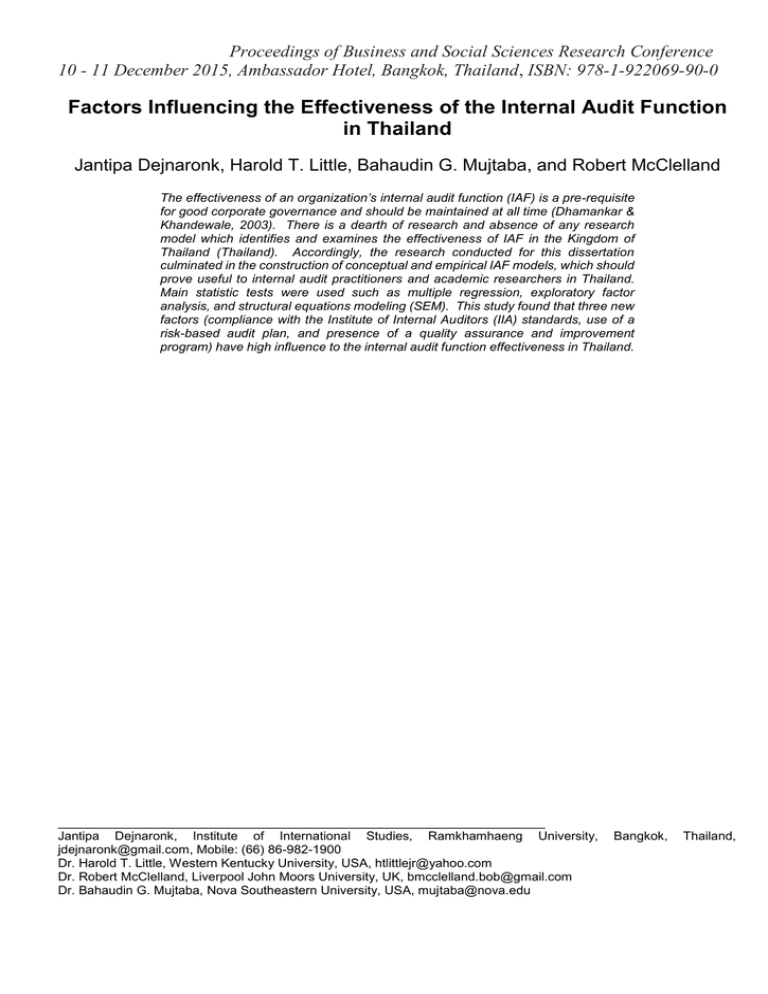
Proceedings of Business and Social Sciences Research Conference 10 - 11 December 2015, Ambassador Hotel, Bangkok, Thailand, ISBN: 978-1-922069-90-0 Factors Influencing the Effectiveness of the Internal Audit Function in Thailand Jantipa Dejnaronk, Harold T. Little, Bahaudin G. Mujtaba, and Robert McClelland The effectiveness of an organization’s internal audit function (IAF) is a pre-requisite for good corporate governance and should be maintained at all time (Dhamankar & Khandewale, 2003). There is a dearth of research and absence of any research model which identifies and examines the effectiveness of IAF in the Kingdom of Thailand (Thailand). Accordingly, the research conducted for this dissertation culminated in the construction of conceptual and empirical IAF models, which should prove useful to internal audit practitioners and academic researchers in Thailand. Main statistic tests were used such as multiple regression, exploratory factor analysis, and structural equations modeling (SEM). This study found that three new factors (compliance with the Institute of Internal Auditors (IIA) standards, use of a risk-based audit plan, and presence of a quality assurance and improvement program) have high influence to the internal audit function effectiveness in Thailand. ____________________________________________________________________ Jantipa Dejnaronk, Institute of International Studies, Ramkhamhaeng University, jdejnaronk@gmail.com, Mobile: (66) 86-982-1900 Dr. Harold T. Little, Western Kentucky University, USA, htlittlejr@yahoo.com Dr. Robert McClelland, Liverpool John Moors University, UK, bmcclelland.bob@gmail.com Dr. Bahaudin G. Mujtaba, Nova Southeastern University, USA, mujtaba@nova.edu Bangkok, Thailand,
